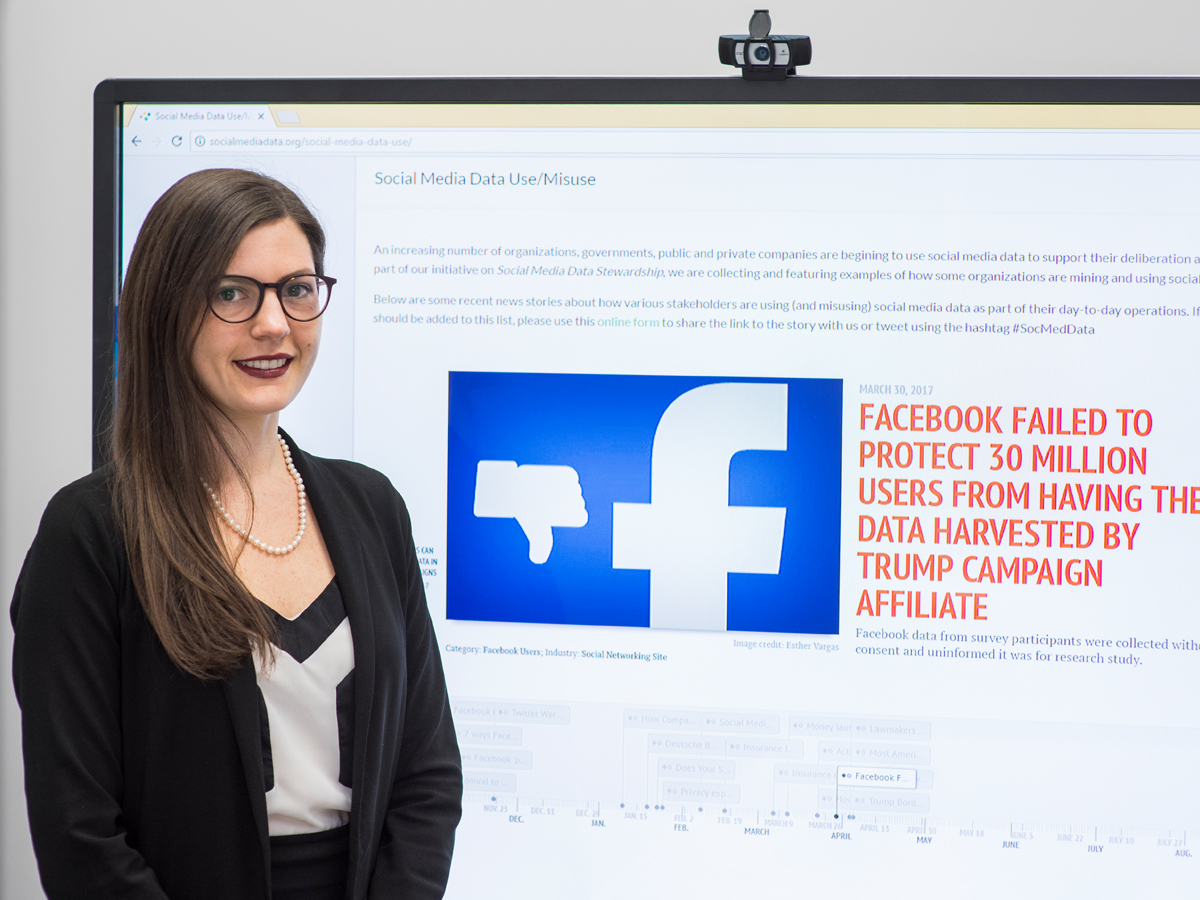Expectations of privacy still exist for public data

Postdoctoral fellow Jenna Jacobson is one of the scholars working in Ryerson's Social Media Lab. (Credit: Carrie Duncan)
Potential employers are using social media to dig deeper into candidates’ backgrounds, but how do prospective employees feel about their public social media data being used?
According to Jenna Jacobson, a postdoctoral research fellow at Ryerson’s Social Media Lab, the answer is complex. While people understand that their data is accessible through platforms like Twitter and Facebook, they still don’t like the idea of it being used for job screening.
“This is increasingly important because of the large amount of data available online,” said Jacobson, whose work examines the factors that influence an individual’s discomfort around public data being accessed by strangers. “There are potential issues of discrimination and unconscious bias that are opened up with employers having access to data that isn’t available through a traditional CV.”
This particular study is part of a larger Canada Research Chair funded initiative led by professor Anatoliy Gruzd, chair in Social Media Data Stewardship. The data was broken down into four different categories: images, network data, actual content and analytic data. As expected, people felt most guarded about their network data being accessed — primarily their social media accounts. “People were not comfortable with the idea of employers accessing who their friends are and who their friends are connected to,” said Jacobson.
The study, which included sample groups in India and the U.S., points to job seekers being aware that their data is being accessed by employers and crafting online personas that would be appealing to hiring managers.
In addition, this research also shows that cultural differences play an important role in how comfortable people are with the practice of using social media data for job screening. For example, when the data was broken down by country, the study found that people from India were more comfortable with this practice than those from the U.S. When the study compared the sample population based on gender, the research showed no difference in how men versus women respond to social media screening.
However, the overall sentiment in the research group was one of general discomfort. This could present a red flag for potential employers, as this discomfort could translate into a negative perception of their organizations.
“Just because social media data is public, it doesn’t mean people have no expectation of privacy,” noted Jacobson. “There are data-specific expectations of privacy.”
Going forward, the Social Media Lab team at Ryerson’s Ted Rogers School of Management plans to conduct a new survey across Canada to further examine attitudes around public social media data being used by outside sources.
Jenna Jacobson is a postdoctoral fellow working with professor Anatoliy Gruzd on a Canada Research Chair funded project.